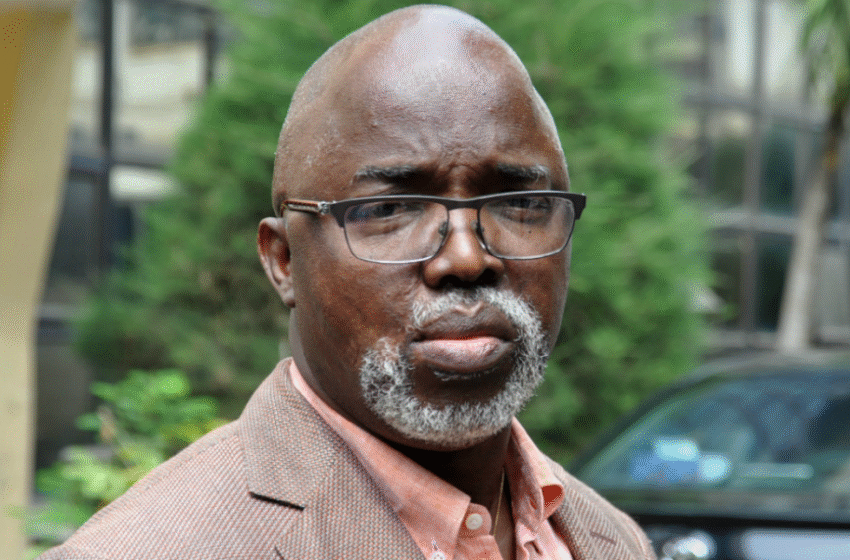Pinnick at CAF: Opportunity for reform or more of the same?

Amaju Pinnick named CAF special adviser
Amaju Pinnick Melvin’s appointment as Special Adviser to Confederation of African Football (CAF) President Patrice Motsepe has reignited conversations about the future of football governance in Africa. Is it a step toward genuine reform, or just another round of recycled leadership?
Pinnick’s New CAF Role: Power with Influence
On July 5, 2025, Amaju Pinnick was officially named Special Adviser to CAF President Patrice Motsepe, a role that grants him access to all executive-level decisions within the continent’s highest football body. His appointment, announced during a CAF Executive Committee meeting in Rabat, Morocco, is already stirring reactions across African sports circles.
Motsepe praised the move, calling Pinnick “a beloved figure in CAF.” While the title is advisory, the influence it carries is considerable. As Special Adviser, Pinnick will help shape CAF’s strategic direction, oversee operational policy, and contribute to long-term planning for football development across the continent. Nigerian stakeholders have welcomed the appointment, with the Federal Government and former Sports Minister Sunday Dare describing it as a win for the nation and African football.
A History of Governance and Controversy
Pinnick is not new to the corridors of power. He served two terms as President of the Nigeria Football Federation (NFF) between 2014 and 2022, during which Nigeria saw increased sponsorships and improved national team structures. He also served as CAF First Vice President and was a member of the FIFA Council before losing his seat in 2022.
However, his legacy is mixed. While praised for bringing international visibility to Nigerian football, his time at the NFF was also marred by allegations of financial mismanagement and administrative bottlenecks. Though no legal convictions emerged, public scrutiny and internal federation tensions stained his second term. With this background, some observers are asking: Will Pinnick bring meaningful reform to CAF, or will his past patterns repeat?
Nigeria’s Football Diplomacy Gets a Boost
The Nigerian government was quick to celebrate the appointment. The presidency and the Ministry of Sports described Pinnick’s new role as an elevation of Nigeria’s diplomatic standing in international football. According to officials, Pinnick’s experience positions him as a key player capable of attracting investment and influencing high-level decisions within CAF.
Presidential Aide Sunday Dare emphasized that Pinnick’s re-entry into CAF’s leadership circle offers a chance to champion transparency and modern governance, both of which are critical to repositioning African football globally. Yet, for many critics, the real concern is whether CAF’s deeply entrenched political structure allows room for such change at all.
Reform or Continuity? The Continental Debate
The central debate surrounding Pinnick’s appointment is whether he represents change or continuity. Supporters argue that his knowledge of sponsorship, event management, and global football politics can drive modernization at CAF, especially as the organization looks to strengthen partnerships and improve tournament operations.
On the other hand, skeptics worry that his return signals more of the same leadership patterns that have slowed progress in African football. They point to CAF’s long history of opaque decisions, political infighting, and weak accountability structures. If Pinnick’s advisory role lacks executive autonomy, reform may remain elusive despite good intentions.
READ MORE
Who is Amaju Pinnick? Inside the career of CAF President’s new adviser
The Road Ahead: What to Expect
With this new appointment, Pinnick has an opportunity to redefine his legacy. He could help initiate structural reforms, push for transparent financial practices, and promote youth development programs across the continent. His knowledge of sponsorship strategy, commercial growth, and team management is likely to shape CAF’s priorities moving forward.
However, for tangible change to occur, Pinnick will need more than experience, he’ll need political will, institutional support, and the courage to challenge status quo dynamics. Whether his return becomes a turning point or a missed opportunity will depend on how he navigates the complex web of football politics in Africa.
Amaju Pinnick’s re-emergence in African football leadership is a development too significant to ignore. As CAF looks to reposition itself on the global stage, the question remains: is Pinnick the reformer African football needs, or another chapter in its cycle of continuity? Time and transparency will tell.

